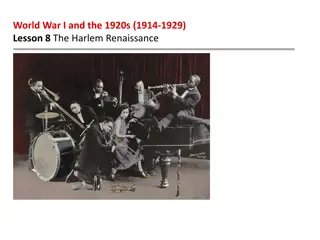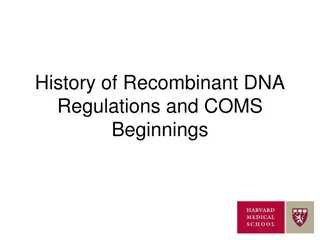
Origin and Development of Sociology in Europe
Explore the historical and social forces that shaped the origins and development of sociology in Europe, focusing on France, Germany, and Britain. Understand the societal conditions before the 18th and 19th centuries, including political, economic, and religious influences. Discover how European societies evolved from conservative, illiterate, and superstitious to questioning existing structures during the Renaissance period, leading to the emergence of sociology as an academic discipline.
Uploaded on | 0 Views
Download Presentation

Please find below an Image/Link to download the presentation.
The content on the website is provided AS IS for your information and personal use only. It may not be sold, licensed, or shared on other websites without obtaining consent from the author. If you encounter any issues during the download, it is possible that the publisher has removed the file from their server.
You are allowed to download the files provided on this website for personal or commercial use, subject to the condition that they are used lawfully. All files are the property of their respective owners.
The content on the website is provided AS IS for your information and personal use only. It may not be sold, licensed, or shared on other websites without obtaining consent from the author.
E N D
Presentation Transcript
Lecture Two Origin and Development of Sociology Lecturer: Dr. Samson Obed Appiah, Dept. of Sociology Contact Information: soappiah@ug.edu.gh College of Education School of Continuing and Distance Education 2014/2015 2016/2017
Lecture Overview Sociology as a scientific study did not originate out of a vacuum; There were historical and social forces or factors which influenced the emergence and development of sociology; This lecture seeks to introduce students to the social and/or historical context in which sociology developed within Europe particularly France, Germany and Britain. Slide 2
Lecture Objectives Objective of Session: At the end of the lecture, the student will be able to: Understand the social conditions in Europe before the 18th and 19th century; Identify the historical and social factors which influenced the origin of sociology; Understand how the social forces particularly influenced the development of sociology Slide 3
Europe before the 18 Europe before the 18th th and 19 and 19th th Century Century Sociology as an academic discipline developed within Europe particularly France, Germany and Britain; As a result, the political, economic and religious conditions within these European societies influences the origins of sociology; Politically, European societies were monarchies ruled by kings who were considered divine and could not be challenged; Economically, they were agricultural people with little or no division of labour; Slide 4
Europe before the 18th and 19th Century Cont. Religiously, they were conservative, illiterate and superstitious living in traditional communities; However, by the beginning of the 19th century, Europeans begun to develop new ideas; This is beginning of the period of Renaissance about their societies and social life and begun questioning the political, economic and religious structures of society; This led to the following factors below as social and intellectual factors influencing the origin of sociology; Slide 5
Social and Historical Factors influencing the Development and Origin of Sociology All intellectual fields just as Sociology are profoundly shaped by their social setting and outdoor by a set of events; The social and historical settings out of which Sociology emerged were: 1. Renaissance; 2. Reformation; 3. French Revolution; 4. Industrial Revolution and; 5. The Intellectual Forces or the Enlightenment. Slide 6
1. Renaissance The Renaissance also known as the Rebirth of Knowledge lead to the expansion of learning, arts, culture; It refers to the rediscovery by scholars called humanists of the writings of the ancient Greek and Romans; It is a period within which the spirit of scholarship which was liberated repudiated realism in though and favored a more genuine respect for facts; For the first time more realistic views were expressed overshadowing the idealistic picture of society; The outgrowth of the Renaissance fostered religious skepticism. Slide 7
2. Reformation/Religious Revolution One of the greatest of all revolutions is the Religious revolution which occurred in the 16th century; It separated the Christians of Western Europe into Protestants and Catholics; By the start of the 16th century, Western Europe had only one religion, the Roman Catholic; However disputes and lax practices had grown up within the church; Some criticized the administration of the church and even doubted some of its teachings and doctrines; Slide 8
2. Reformation Cont. For example the church insisted that it alone had the authority to interpret the meaning of the bible for the people; However, John Wyciffe an English priest and a teacher at Oxford University, declared that people had the right to read the Bible and interpret it; Despite protests by the Church, followers of Wycliffe translated the bible from Latin into English; The work of Wycliffe influenced Martin Luther who became the German leader of the Reformation. Slide 9
2. Reformation Cont. Luther protested that some clergy were selling indulgences (temporal pardon of sins) without making clear that the people must also be repentant for sins; He developed new ideas opposing the church by writing the 95 theses against indulgences; Martin Luther called for rejection of five sacraments out of the seven as he favored baptism and the Lord s supper; as celibacy of the clergy was rejected; He was excommunicated from the church leading to division and chaos in society. Slide 10
3. The Political or French Revolution Before the revolution, France like other European societies were monarchies ruled by kings and a class-based society; There was very little liberties for the individual and there was nothing like democracy; The Upper class made up of the King and the nobles paid no tax but the poor did; New ideas by Voltaire and Rousseau was that: All men had natural and equal rights and also The general will of the people was supreme to the will of the ruler; Slide 11
3. The Political or French Revolution Cont. As a result of new ideas, some people questioned the divine right of the monarchy and there was a revolution in France; The revolution resulted in the violent overthrow and killing of the French King as many people were killed; The revolution was also positive as it brought about the end to the monarchy and class system leading to democracy; However, the revolution also brought about negative consequences to the French society. Slide 12
3. The Political or French Revolution Cont. The negative effects of the revolution were that it created disrespect for authority, social anarchy, disorder and disintegration of society; It was these negative effects that influenced the emergence of sociology as some social philosophers were concerned about the chaos and anarchy in society; Their desire and interest in re-creating orderly and well- integrated societies led to the development of societies (Founding fathers like Auguste Comte). Slide 13
4. The Industrial Revolution The industrial revolution (1750-1850) resulted in the transformation of western world from a largely agricultural to an industrial system; As a result, the labour force that had hitherto worked on the farms left for industrial factories; The industrial revolution influenced the lives of people in many ways: migration to search for factory work; The revolution brought about a new capitalist system with few individuals owned the means of production. Slide 14
4. The Industrial Revolution Cont. This brought about industrialization and urbanization and many social problems; Problems such as unemployment, overcrowding, lack of accommodation, social isolation, creation of slumps among others; Social thinkers and early sociologist were concerned about these problems; Their attempts to find solutions to these problems by studying them led to the emergence of sociology; Slide 15
5. Enlightenment Period In France, the Enlightenment is often termed the Age of Reason because this was when the hold of religion, tradition and superstition were finally broken During this period, a number of long-standing ideas and beliefs about social life were overthrown and replaced with rational and empirical observation Social philosophers believed in using knowledge and reasoning to create a good society. Slide 16
5. The Enlightenment Cont. It was these enlightenment ideas that brought about the changes in the political, economic and religious lives of European societies. In an attempt to understand the political, economic and religious changes in Europe at the time, and provide solutions to them; The French social philosopher Auguste Comte proposed that society should be studied scientifically through a new discipline called sociology. Slide 17
Intellectual Responses In a bid to understand the political and economic changes taking place in Europe (particularly France, Britain & Germany) at the time; And offer solutions to the emerging problems of industrial society the French Social Philosopher; Auguste Comte proposed that there should be a new discipline of society called Sociology; It s main mission is to study society scientifically and to make prescription for the betterment of society; Thus, the foundations of sociology were laid in the context of 18th and 19th centuries Europe. Slide 18
Sample Question Before we leave consider this question: In not more than two pages outline the conditions in Europe during the 18th and the 19th centuries that contributed to the development of sociology We ll meet next week same time BYE Slide 19
Reading List/References Hughes, M., Kroehler, C.J. (2005). Sociology:The Core (7th Edition). Boston: McGraw-Hill Companies, Inc. (Chapter 1, Pages 6-10) Henslin, J.M. (2007). Essentials of Sociology: A Down-to- Earth Approach. Boston: Pearson Custom Publishing. (Chapter one, Pages 5-6) Robertson, Ian (1987). Sociology. New York: Worth Publications (Chapter one Pages ) Slide 20






















